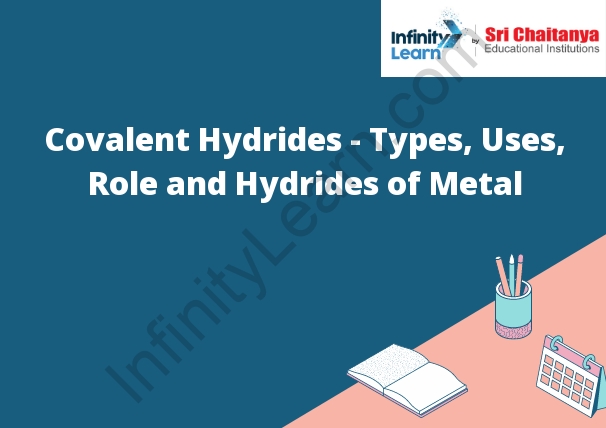Table of Contents
What are Hydrides?
Hydrides are compounds of hydrogen and another element. The simplest hydride is hydrogen gas, H2. Other hydrides include water, H2O, and ammonia, NH3.

Ionic hydrides
- Ionic hydrides are compounds of hydrogen and a metal. They are very important in chemistry, because they are used to make many other compounds.
- One of the most important ionic hydrides is sodium hydride. Sodium hydride is used to make sodium hydroxide, which is used in many industries. Sodium hydroxide is used to make soap, paper, and many other products.
- Another important ionic hydride is lithium hydride. Lithium hydride is used to make lithium hydroxide, which is used to make batteries. Batteries are used to power many devices, such as cell phones and laptops.
- Ionic hydrides are also used to make many other compounds. For example, they are used to make hydrocarbons, which are used to make gasoline and other fuels. Ionic hydrides are also used to make many other chemicals, such as plastics and pharmaceuticals.
- Ionic hydrides are very important in chemistry, because they are used to make many other compounds. They are used to make hydrocarbons, which are used to make gasoline and other fuels. They are also used to make many other chemicals, such as plastics and pharmaceuticals.
- Ionic hydrides are compounds composed of hydrogen and an ionic element. An ionic hydride is a binary compound composed of hydrogen and an ionic element. The ionic element can be a metal or a nonmetal. Ionic hydrides are generally unstable and reactive. They are often used as reducing agents.
Covalent hydrides
- A covalent hydride is a compound formed when a hydrogen atom is covalently bonded to another atom. Covalent hydrides are usually molecular in nature and can be gases, liquids, or solids. Some common covalent hydrides are water, ammonia, and methane.
- Covalent hydrides are held together by covalent bonds, which are strong chemical bonds that involve the sharing of electrons between atoms. In covalent hydrides, the hydrogen atom shares its electron with another atom, forming a covalent bond. This allows the hydrogen atom to become stabilized by filling its outer shell with electrons.
- Covalent hydrides are usually very stable compounds and are not very reactive. However, they can be subject to corrosion if they are exposed to certain chemicals or environments. Covalent hydrides can also be flammable and can be dangerous if they are not handled properly.
- In chemistry, a covalent hydride is a compound formed from the combination of hydrogen and another element by covalent bonding. The simplest covalent hydride is hydrogen gas, H2. Other covalent hydrides include water, ammonia, and methane.
Metallic hydrides
- Metallic hydride are ionic compounds that contain a metal and hydrogen. They are very strong and have a high melting point. Metallic hydrides are often used as storage vessels for hydrogen fuel cells.
- A metallic hydride is a material composed of a metal and hydrogen atoms. The metal can be an alkali metal, alkaline earth metal, transition metal, rare earth metal, or actinide. The hydrogen atoms can be in the form of protons or electrons.
- Metallic hydrides have a variety of applications, including as storage media for hydrogen fuel cells, as hydrogenation catalysts, and as absorbents for hydrogen gas. They can also be used to produce hydrogen gas by reacting with water.
- Metallic hydrides are typically very light and have a high hydrogen storage capacity. They are also very stable, making them safe to use. However, they can be expensive to produce.



